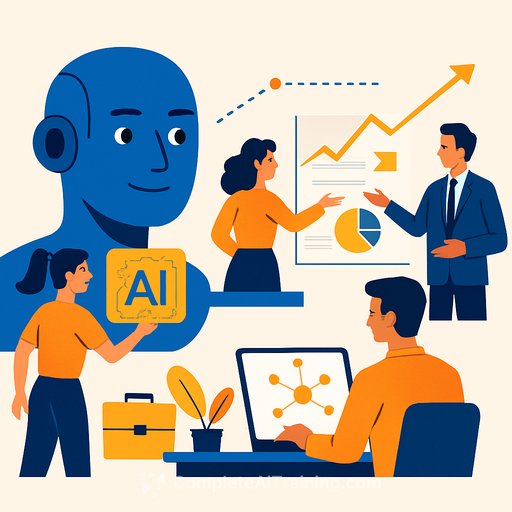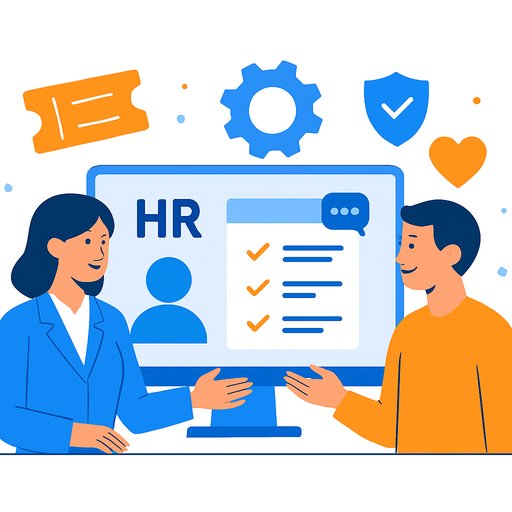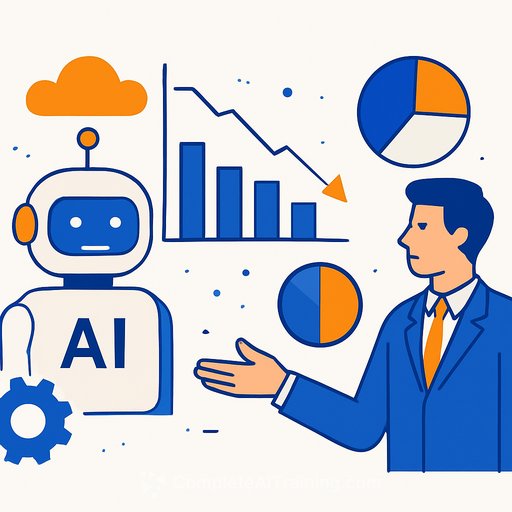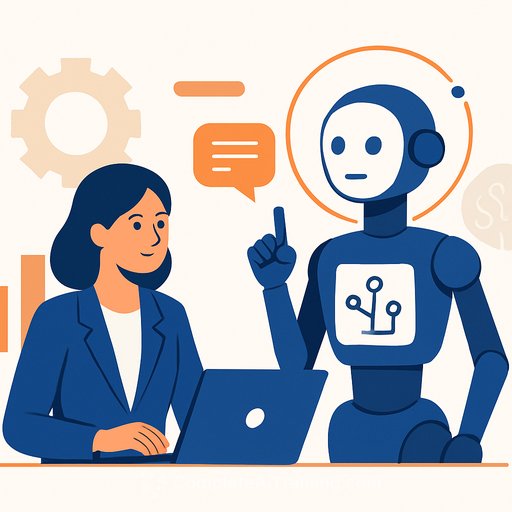AI’s Shift Reshaping the ‘Brain’ Group in Organizations
Artificial intelligence (AI) is no longer a distant concept but an active force transforming work, especially in large enterprises and ventures. Recent layoffs in major tech firms like Microsoft signal a shift toward investing heavily in AI, sometimes at the cost of traditional roles. Increasingly, companies are opting to fill vacancies with AI tools instead of new hires, which has significant implications for HR professionals.
The Divide: AI Adoption in Large Enterprises vs. Ventures
Large companies tend to introduce AI as a support tool within existing structures, while startups and ventures often design their entire operations around AI from the ground up. This difference affects how quickly and effectively AI drives productivity and innovation.
Executives like Amazon’s Andy Jassy and Ford's Jim Farley have publicly acknowledged that AI will reduce the number of white-collar jobs in the near future. Even organizations with highly skilled, well-paid employees are not immune. For HR, this means anticipating shifts in workforce needs and managing transitions thoughtfully.
Insights from McKinsey on AI’s Impact and Employment
Daniel Aminetzah and Michael Park, senior partners at McKinsey & Company, emphasize that AI acts as an assistant expanding both the depth and speed of work rather than replacing consultants outright. McKinsey’s internal AI platform, “Lilli,” accelerates research and analysis dramatically, turning multi-week tasks into day-long efforts.
Consultants are evolving from back-end analysts to active business partners who co-design and implement solutions with AI as a core collaborator. This approach underscores the importance of combining human creativity with AI capabilities in the workplace.
Future Outlook: AI and Jobs
- AI will replace numerous tasks, but human creativity remains essential.
- Some job displacement is expected, particularly in roles involving routine white-collar tasks.
- Organizations that integrate AI effectively can see productivity boosts of 35-70%.
- Startups designed around AI can innovate and scale faster than traditional corporations hindered by legacy structures.
The key takeaway for HR is to focus on reskilling, recruitment, and cultural shifts that embrace experimentation and rapid learning.
McKinsey Business Building Platform and AI
McKinsey’s Business Building (MBB) platform goes beyond strategy, actively partnering with clients to co-create and scale new ventures. AI is a foundational element, helping companies design new operating models and embed innovation at their core.
Startups and spin-offs that build AI into their DNA tend to move faster and adapt more readily. This model challenges traditional corporations to rethink their innovation approaches and organizational design.
Organizational Factors That Determine AI Success or Failure
- Culture and speed matter. Companies stuck in slow decision-making with short-term incentives often stall AI projects at the pilot phase.
- Talent and learning agility are critical. Organizations that “fail fast and learn fast” adapt better.
- Smaller, AI-focused teams outperform. Agile units can disrupt markets with fewer resources and faster execution.
For HR, fostering a culture open to experimentation and rapid adaptation is crucial. Hiring for AI-relevant skills and mindset beats merely focusing on technology alone.
Strategies for AI Integration in Large Companies
Many large companies struggle to move beyond pilot projects due to entrenched cultures and unclear ROI on AI investments. McKinsey recommends a multi-pronged approach:
- Reorganize teams and create internal ventures focused on AI innovation.
- Acquire startups to inject new capabilities and speed.
- Invest in new businesses alongside traditional operations to encourage organic growth.
- Establish a culture that values quick decision-making and learning from failure.
HR leaders should champion these changes by aligning incentives, streamlining recruitment for AI talent, and promoting agile workflows.
The 20% Growth Capital Rule
Research from McKinsey shows companies investing about 20% of their growth capital in new ventures experience roughly 2% higher annual revenue growth. This investment is less about immediate ROI and more about building long-term organizational capabilities.
For HR, this means supporting leadership in identifying high-potential ventures and enabling talent mobility between core business and innovation teams.
Government AI Policies and Their Influence
Governments worldwide are prioritizing AI through investments, subsidies, and policy initiatives. This external environment adds pressure on companies to accelerate AI adoption and workforce transformation.
McKinsey’s Role as a Partner in AI Transformation
McKinsey selectively partners with organizations ready to embrace change, focusing on those capable of internalizing AI technologies and fostering an experimental culture. Their involvement extends beyond consulting to embedding talent, designing structures, and connecting companies with investors.
For HR, collaborating with external partners who understand both technology and people can accelerate the adoption of new operating models.
Profiles of Key McKinsey Partners
- Daniel Aminetzah: Senior Partner and co-leader of McKinsey Business Building, with a background in economics, intelligence operations, and global business transformation.
- Michael Park: Senior Partner and Asian leader in technology, media, and telecommunications at McKinsey, expert in organizational performance and talent strategy.
What HR Professionals Need to Know
AI is reshaping the nature of work, demanding new skills, agile cultures, and strategic investment in innovation. HR must lead by:
- Anticipating workforce changes and planning reskilling initiatives.
- Recruiting talent equipped for AI-enhanced roles.
- Promoting a culture that embraces experimentation and continuous learning.
- Supporting leadership in investing thoughtfully in new business ventures.
- Collaborating with technology and consulting partners who offer integrated solutions.
For professionals looking to deepen their AI knowledge and skills, resources such as Complete AI Training’s latest courses offer practical pathways to stay current and competitive.
Your membership also unlocks:






